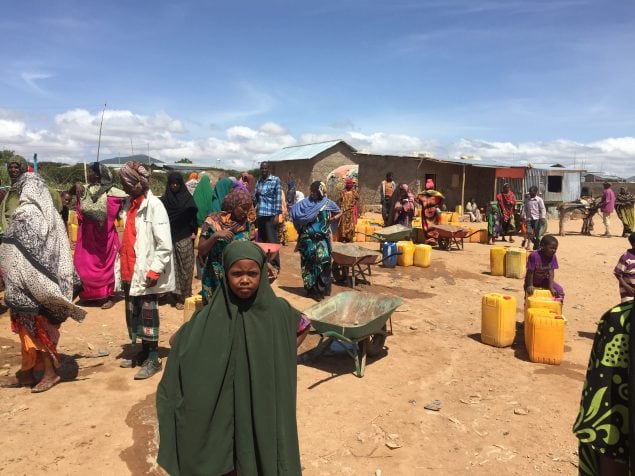
A Global Roadmap to End Cholera

Photo Credit Anu Rajasingham, CDC
Public Health Threat: Without treatment, cholera can become deadly within hours.
Cholera has become an increasing public health concern around the world. It kills an estimated 95,000 people each year and infects 2.9 million more. CDC works with global partners to detect cholera early, respond quickly, and prevent large-scale, uncontrolled outbreaks of this devastating illness.
Response: In October 2017, the Global Task Force on Cholera Control launched Ending Cholera: The Global Roadmap to 2030 – a bold, unified approach to cholera prevention and control. This comprehensive plan integrates evidence-based best practices and identifies priorities to reduce cholera deaths by 90% by 2030.
CDC is a founding member of the Task Force, with experts working on water, sanitation and hygiene (WASH) disease prevention measures, case management, epidemiology and surveillance, laboratory, and vaccines.
Impact: For over half a century, CDC has worked to prevent, detect, and respond to cholera outbreaks in the United States and abroad. As new methods for cholera prevention, detection, and treatment have been introduced – from oral rehydration salts, to rapid diagnostic tests, to cholera vaccines – CDC has evaluated, adopted, and promoted the most effective measures to combat cholera.
Implementing the Global Roadmap will protect millions of people from cholera illness and death, and reduce the number, size, and duration of cholera outbreaks. It will also accelerate the effort to reach those most in need with access to safe drinking water and sanitation.
In recent years, CDC has helped train experts to prepare for or respond to cholera outbreaks in Cameroon, Ethiopia, Iraq, Kenya, Saudi Arabia, Sierra Leone, and Tanzania. CDC recently provided technical assistance and funding to support cholera response efforts in Horn of Africa, sub-Saharan Africa, and Yemen.





















.jpg)









No hay comentarios:
Publicar un comentario